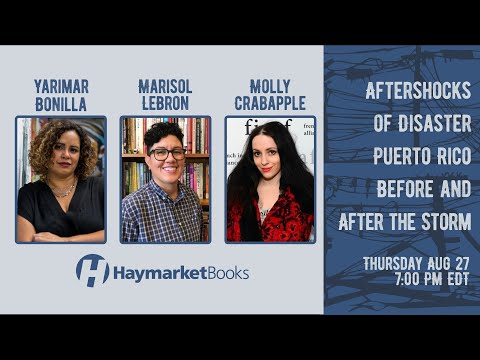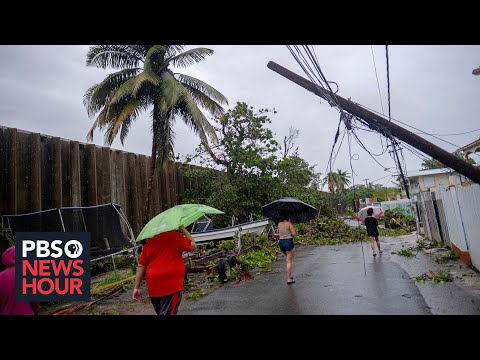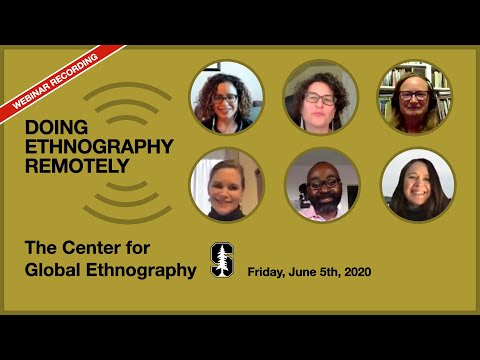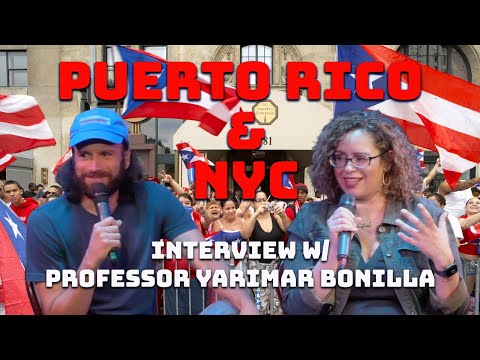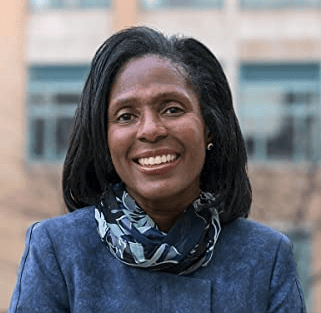Videos
Learn More About Yarimar Bonilla
Yarimar Bonilla is a political anthropologist, professor in the Effron Center for the Study of America at Princeton University and a contributing writer for The New York Times.
Both an accomplished scholar and a prominent public intellectual, Dr. Bonilla teaches and writes broadly across disciplines and fields on questions of race, citizenship, empire, and the entanglements of postcolonial sovereignty. She is the author and editor of several books, including “Non-Sovereign Futures: French Caribbean Politics in the Wake of Disenchantment” (University of Chicago Press, October 2015), “Aftershocks of Disaster: Puerto Rico Before and After the Storm” (Haymarket Books, September 2019), and “Trouillot Remixed: The Michel Rolph Trouillot Reader” (Duke University Press Books, September 2021).
In addition to her publications, Dr. Bonilla has produced several documentaries including “Aftershocks of Disaster: the Film” and the Emmy-nominated documentary series “Puerto Rican Voices“. She was also a contributor to the first season of the award-winning podcast series La Brega with her audio ethnography of Puerto Rico’s colonial crisis, a founder of the public humanities project Puerto Rico Syllabus, a former editor of Public Anthropologies for American Anthropologist, and a former Director of the Center for Puerto Rican Studies at Hunter College.
Bonilla is currently working on several new book projects. “The Coloniality of Disaster” is an ethnographic examination of the politics of recovery in Puerto Rico after Hurricane Maria and the forms of political and social trauma that the storm revealed, “An Unthinkable State”, examines the Puerto Rican statehood movement for what it reveals about the nature and contradictions of the US Empire. Lastly, the collection “Thinking with Bad Bunny” brings together scholars, musicians, and journalists to reflect on the future of Puerto Rico through the lens of reggaeton.
Professor Bonilla’s work has been fostered by multiple grants and awards from the National Science Foundation, the Mellon foundation, the Carnegie Foundation, the Russell Sage Foundation, the Chateaubriand Fellowship Program, the Schomburg Center for Research in Black Culture, the Carter G. Woodson Institute for Afro-American and African Studies at the University of Virginia, and the W.E.B. Dubois Institute at Harvard University.
Yarimar Bonilla is available to advise your organization via virtual and in-person consulting meetings, interactive workshops and customized keynotes through the exclusive representation of Stern Speakers & Advisors, a division of Stern Strategy Group®.

Non-Sovereign Futures: French Caribbean Politics in the Wake of Disenchantment
(University of Chicago Press, October 2015)

#Ferguson: Digital Protest, Hashtag Ethnography, and the Racial Politics of Social Media in the United States
(American Ethnologist, January 2015)
Praise for "Aftershocks of Disaster"
"As 'Aftershocks of Disaster' makes clear, Hurricane María was only part of the problem. From crumbling infrastructure to austerity, from US governmental interference to an unpayable debt, for hundreds of years before the storm and in the years since, the island has been plagued by multiple Marías. Yet 'Aftershocks of Disaster' makes just as clear that despite multiple disasters and the many shocks and aftershocks they have experienced, Puerto Ricans are working to create their future."
"In this gripping collection of essays, poems and photos, 'Aftershocks of Disaster' captures both the roots of Puerto Rico's current crisis in its continuing colonial status and the determination of the island's people to persevere and forge a better future."
"Broad in scope, passionate, and urgent, Aftershocks is a necessary anthology of Puerto Ricans telling the story not just of Maria but of resistance to colonialism, austerity and disaster capitalism."
"Hurricane Maria was a major disaster. It is also, potentially, a transformative event. The contributors to this powerful volume explain how big structural forces - climate change, colonialism, corruption, and capitalism - contributed to the devastation, but they also chart a radical path forward, towards a more just and sustainable world."
“For those of us who were forced out of Puerto Rico and who watched the hurricane from outside, this book provides beautiful and painful clarity about how we got here and the struggles behind our survival.”
Praise for “Non-Sovereign Futures”
“'Non-Sovereign Futures' brilliantly asks us to reexamine what political sovereignty looks like by chronicling labor activists’ visions of political and economic change in Guadeloupe. Here, history and memory make material the affective dimensions of belonging and struggle, and everyday performative practices and social experiences offer alternative modes of community formation and sociality to what has otherwise been an extremely high (foreign) consumerist orientation and a somewhat fragmented political base. For scholars and advocates now searching for the next political horizon for the Caribbean and beyond, 'Non-Sovereign Futures' is provocative, illuminating, and necessary!”
“'Non-Sovereign Futures' wonderfully fulfills the vision articulated by Trouillot of what Caribbeanist anthropology can accomplish. What we get here is at once a rich and powerful documentation of a particular political movement and, through that documentation, a set of approaches to thinking about broad and global questions about politics, ideology, and practice.”
“'Non-Sovereign Futures: French Caribbean Politics in the Wake of Disenchantment' marks a significant intervention into debates about Caribbean pasts in the present. Focusing its historical and ethnographic lens on the 2009 labor upheaval in Guadeloupe, the book explores with methodological verve and seminal insight the paradoxical tension between the desire to resist continued dependence on France, and the difficulty of articulating a vocabulary that might embody the collective demand for an alternative mode of political self-determination. In short, the book aims to put into question whether sovereignty can continue to be imagined as the single normative good and ultimate value of modern political life.”

